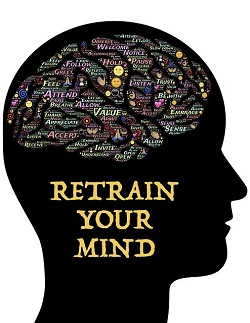
Of course, I’m poaching unashamedly from Gretchen Rubin and Liz Craft, as they discussed their words for the year on yesterday’s “Happier podcast. Gretchen’s word is “infrastructure;” Although it’s kind of a boring word in and of itself, perhaps, she’s using it in the sense of “support systems,” as she’s very bad at delegating and she needs to do less work that others can do. Liz’s is “lighter,” and she’s taking that word in both of its meanings: her weight and her attitude. Liz’s word leads Gretchen to quote once again G. K. Chesterton’s aphorism “It is easy to be heavy, hard to be light.” (One of my 2020 reading goals has to do with Chesterton; more on that in a later post.)
As I listened to the two sisters I realized that I had a word right there, ready for use, as I’ve been interested in the concept of respect for a long time. Indeed, the word shows up in the title of this blog, and when I give talks about the proper place of food in our lives I spend some time talking about what I mean by it in that context.
So let me start there and then go on to how respect applies to people. To respect a thing, an inanimate object, such as food, means to give it the proper recognition, to pay it the proper attention. The opposite of this respectful treatment of food would be mindless, automatic eating. Hey! Isn’t there a whole book written about mindless eating? I think there is! As you walk by your co-worker’s desk and grab a handful of M&M’s from her candy dish (I know, I know—I talk about this putative co-worker all the time), you aren’t treating that food respectfully. You’re not paying much if any attention to it. If you’re like me, what attracts you to M&M’s is the crunch of the candy shell. The chocolate itself is . . . pretty boring. (Yes, it is.) You don’t savor the candy, I think it’s safe to say. Would there be a possible way to eat that candy respectfully? In theory, yes. You could say to yourself, “I really like M&M’s, but I want to treat them as a treat, so I’m going to allow myself a small handful of them as my after-lunch dessert. I’m going to enjoy and savor every one of them.” And then at some point you might say, “Hmmm. These really aren’t all that good. They’re not worth the calories.” And you’d quit eating them, not because you’re exercising some great willpower but because you’ve decided that they’re not worth your respect. You don’t care for them.
It’s safe to say, then, that a big part of respect is paying attention. Another part is, as the title of this blog suggests, putting things or people in their proper roles. Food should not be a comfort or a crutch. Neither of those is its proper role. You’re not going to feel any better about a bad situation after you’ve eaten half a dozen chocolate-chip cookies. You aren’t going to read and respond to your e-mail in a more efficient way if you’re munching on chips at the same time. You won’t enjoy the movie more with a bag of popcorn, a sugary drink, and several candy bars in your lap. You won’t be a caught up in reading a book while the snow is falling outside if you’re also drinking hot chocolate. Note that in all of these situations the food is subsidiary to the main event: psychological evaluation, e-mails, movies, reading. The actual activity will go on just fine without the food; indeed, it will go better because you won’t be distracted. There you sit in the theater, ferrying wads of popcorn slathered with some greasy substance to your mouth while on screen the detective moves toward the final solution of the mystery. (Be sure to see “Knives Out.”) How does the popcorn relate to the movie? It doesn’t. (I’ve had kind of an epiphany here as I’ve been writing this, as I hadn’t thought through how this all works before now.) Watching a movie and eating popcorn is a classic pairing: that is, an association of one activity with another when they don’t necessarily have an organic connection. Sometimes pairing is very much to our advantage and can help form healthy habits. So, for instance, first thing in the morning I drink a big mug of water and also use that water to help me swallow my blood-pressure pills. It’s good for me to get myself hydrated after a night’s sleep and it’s good for me to have a specific time to take my medicine. Putting the two together means that they both tend to happen. But when pairing works negatively we have to work at breaking the bond. Back in the days when people could smoke in their offices, a classic pairing was the mid-morning cup of coffee and a cigarette. If you were trying to quit, that cup of coffee inevitably aroused the desire to smoke. Many people turned to some kind of food to fill the void, thus leading to other problems. Probably the best solution to the coffee-and-cigarette pairing would have been to drink better coffee that required attention in and of itself, i.e., coffee that you could respect. (Weird as that sounds.)
I’m rapidly approaching my 1,000-word limit here, so I think I’ll let the ideas on respecting food be it for today. There’s so much to the idea of respecting people that I should do a whole post on that idea.